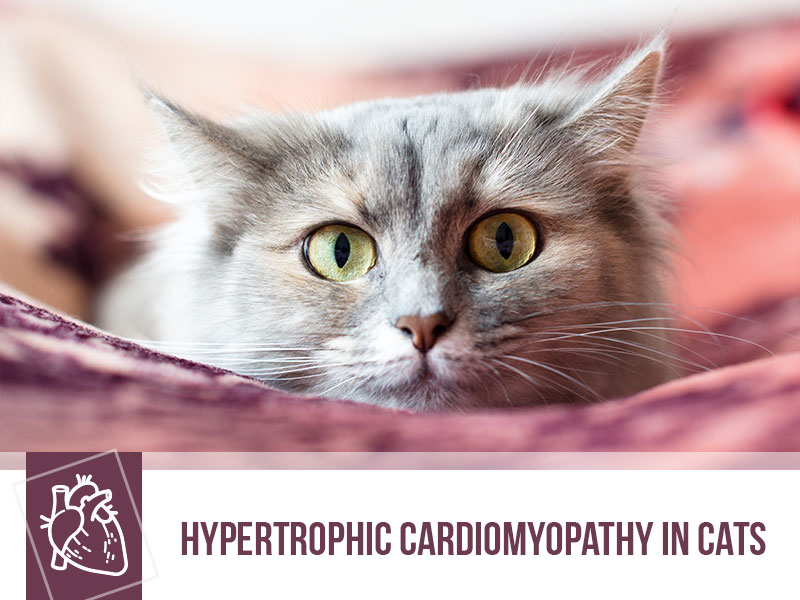
Hypertrophic cardiomyopathy in cats

Having a dodgy ticker isn't just limited to people, much to our feline friends' chagrin they can suffer from heart problems pretty much in the same way.
Hypertrophic cardiomyopathy is a rather big, mean looking word for a relatively common heart problem in our kitties. Hypertrophic means that the muscle that composes the heart is much larger than what it should be and cardiomyopathy means the problem is in the heart muscle.
It's not known why the heart walls thicken so dramatically but some breeds like Maine Coon and Ragdoll have mutations in a gene that codes for a cardiac protein. This dysfunction is implicated in hypertrophic cardiomyopathy, however, a large majority of the cases we don't know the cause.
It manifests at a mean age of 5 to 7 years with a larger predominance towards male cats.
The clinical signs that should be looked out for are difficulty breathing, not wanting to move much, vomiting, not wanting to eat, fainting (called a syncope) and if it progresses enough there might be sudden death due to heart failure. Discerning owners that also have dogs might know that that the usual cause of doggy heart issues causes cough (because of fluid build-up in the lungs secondary to heart failure) but cats usually do not have cough due to heart problems.
It sounds a bit of a contradiction, if the heart has more muscle it should work better, not worse. While at first, there might be more powerful contractions and better blood ejection to the whole body, the excess muscle soon starts failing. What's worse is the chamber affected is the left ventricle. This chamber receives a large quantity of oxygenated blood from the left atrium and distributes it towards all tissues and the muscle will occupy a significant portion of it. All problems stem from this lack of chamber volume and the progressive weakening of the muscles because it's harder for the blood to enter it, so a huge spike in blood pressure in the lungs happens and organs will have insufficient blood supply.
Unfortunately, while it can be managed to an extent it cannot be cured and cats afflicted with this and showing clinical signs have a reduced life expectancy.
Keep an eye on your cat's tick tacking heart and if you see any of the above, take them in to your vet's for a check-up. The earlier its diagnosed, the better it can be managed.
Would you like to know more about cats? Check our Feline Courses:
Feline courses
Published: 14 Oct 2016
Read the previous article: Bloat or gastric dilation in dogs

